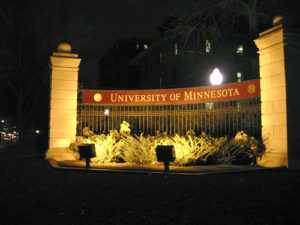By Peter Schmidt
ST. PAUL, Minn. (Chronicle of Higher Education) — An academic center at the University of Minnesota-Twin Cities was within its rights when it discouraged students from using a website that challenges claims Armenians were victims of a genocide by Ottoman Turks, a federal judge ruled on Wednesday in dismissing a lawsuit brought against the university by a student and a Turkish advocacy group.
The judge, Donovan W. Frank of the US District Court in St. Paul, said in his ruling that academic freedom protected the right of the university’s Center for Holocaust and Genocide Studies to tell students a website maintained by the Turkish Coalition of America (TCA) should be avoided as unreliable.









